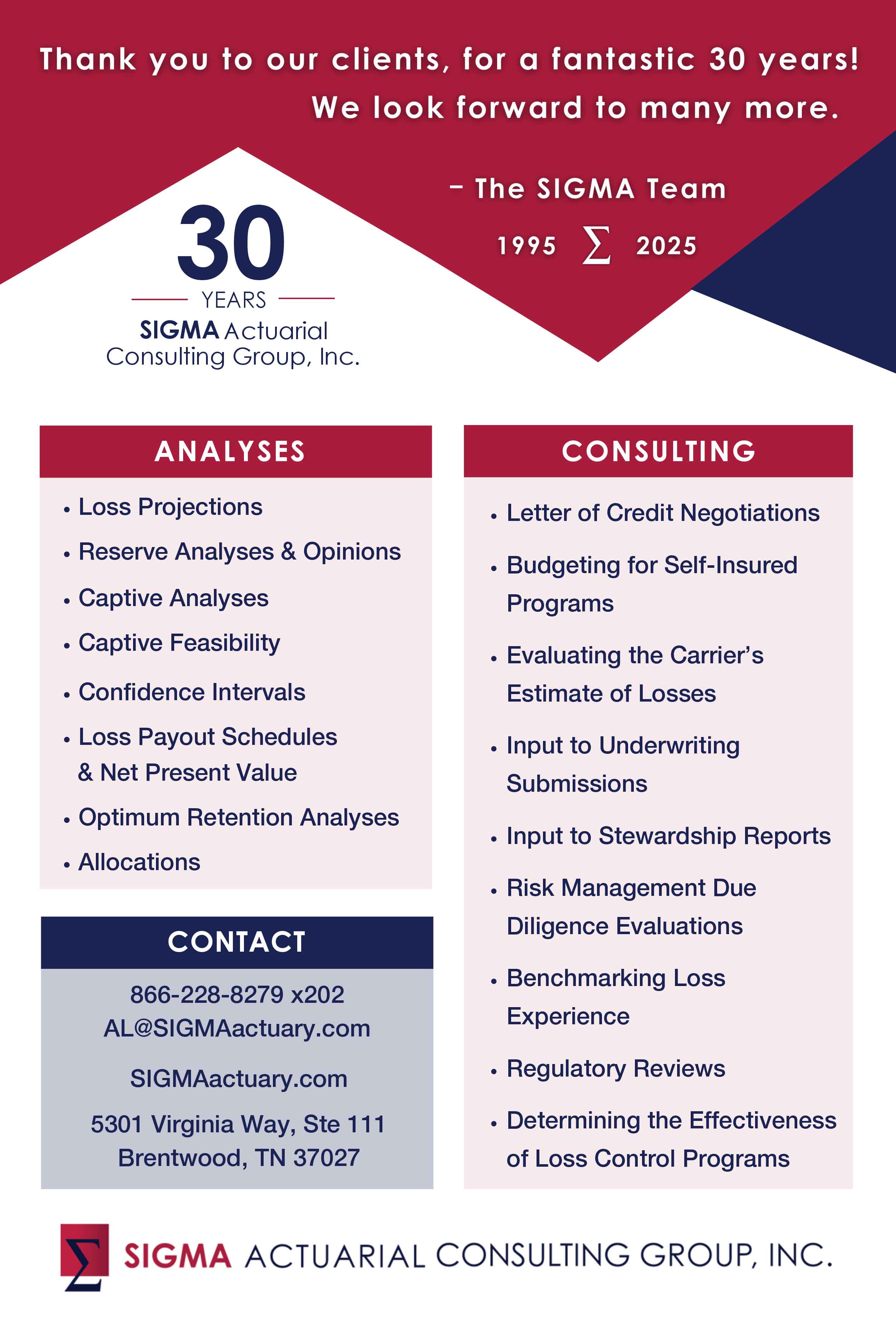Proliferation—that is the word that rears its head in more or less every conversation about the current state of captive insurance in the US and the Caribbean. It is often said that there is a proliferation of captive insurance domiciles and an exhaustible amount of business to go around...
Proliferation—that is the word that rears its head in more or less every conversation about the current state of captive insurance in the US and the Caribbean. It is often said that there is a proliferation of captive insurance domiciles and an exhaustible amount of business to go around.
As well as competition from the US in the shape of established domiciles like Vermont, there is also mounting pressure from newer domiciles, such as the District of Columbia, which cater for smaller programmes.
While Bermuda’s growth is admittedly—and understandably—not reaching the peaks of its captive insurance heyday, there remains encouraging statistics to support the view that competition is acting as the perfect catalyst for progress.
The total insurance market in Bermuda saw 65 new insureds registered in 2014, including pure captives, commercial insurers and reinsurers, while 28 special purpose insurers (SPIs) were also licensed.
Overall, 18 new captives were registered, which remained in line with previous years. Although these numbers did not match the 91 new insureds registered in the domicile during 2013, the total was skewed somewhat by a bumper year for SPIs, in which 51 were registered overall.
Perhaps unsurprisingly, given its breadth of experience, Bermuda offers the full suite of captive programmes, including significant property and employee benefits book, with an increasing interest in cyber risk and warrantee business. Unlike some of its nearest competitors, Bermuda has avoided reliance on one particular type of captive programme. For example, of the 760 captives that filed statutory financial returns in 2014, only 43 were healthcare captives.
As is often the case in the more developed captive domiciles, Bermuda has embraced the mantra of ‘quality over quantity’ when it comes to healthcare captives.
Board member of the island’s Business Development Agency (BDA), Paul Scope, comments: “In recent years, Bermuda has allowed well-capitalised healthcare captives from corporations and non-profits, but we remain selective in that area. We are not heavily dependent on this class, but nevertheless, we have seen growth over the past five years.”
“Bermuda now has about 40 risk professionals writing healthcare insurance and reinsurance, and our market has capacity to write up to $400 million for any single healthcare risk.”
From both a regulatory and tax perspective, the US does not pose a direct threat to offshore domiciles such as Bermuda for the majority of structures, especially insurance-linked securities (ILS) and other third-party business. However, for the traditional US domestic-owned captives, US domiciles do offer credible competition and, in many cases, can offer an equivalent domicile option.
“That being said, there are some instances where Bermuda can provide the best option for US owners, specifically where there is a mix of US and international business,” adds Robert Eastham, who is managing director of Kane Bermuda.
One of these instances is the provision of ILS services, which is fast becoming a priority for insurers in Bermuda. Shelby Weldon, director of licensing and authorisations at the Bermuda Monetary Authority (BMA), says: “ILS as an alternative risk management vehicle seems to be getting more significant in the global insurance space. We want to continue to grow our ILS market while making sure that area is appropriately supervised.”
He adds: “In order to do so, we do not have to do anything radically different—just make sure we are in a position to stand up to international scrutiny.”
While the US continues to be Bermuda’s largest target market, both Canada and Latin America have become increasingly profitable sources of new business. During 2014, a quarter of Bermuda’s captive registrations came from Canada and Latin America.
This expansion has been assisted by the signing of Tax Information Exchange Agreements (TIEAs) with numerous jurisdictions worldwide—Bermuda has 41 such agreements in place as of April 2015.
Scope states that, of the 20 insurers already established in Q1 2015, three are from Latin America. In order to maintain this level of interest, Bermuda has agreed to host ALARYS (the Latin American Congress on Risk Management) in September 2016.
In addition to these priority areas, Weldon says that Bermuda has gained new captives from Africa and continues to see captives from the EU and even the Asia Pacific region.
While he concedes that there is not currently the same level of insurance penetration in the Asia Pacific, Weldon maintains that opportunities are there.
Earlier in 2015, a delegation from Bermuda travelled to China to educate businesses and government in the finer points of the captive concept, while attempting to establish preliminary business relationships.
For Bermuda’s regulators, the main way for the domicile to attract new business from around the globe is to maintain its reputation as a thorough but fair regulator, while staying on the cusp of international regulatory standards.
Weldon explains: “For the jurisdiction as a whole, the key objective for us is to secure full equivalence under the EU Solvency II directive in advance of the implementation date in 2016. That continues to be a focus for us. We have recently been granted qualified jurisdiction status by the National Association of Insurance Commissioners in the US—which remains a key trading partner for us.”
As well as being an attraction for the more diligent among prospective captive managers, there are also many that find Bermuda’s regulatory philosophy to be beneficial to the growth of the captive industry itself.
Oliver Heyliger, managing director at Willis Management in Bermuda, explains: “The Bermuda regulators have continued to be very supportive of the captive industry. This is no more evident than in their effort to bifurcate the level of regulations between captives and commercial insurers.”
“They understand that risk-based regulations should focus more attention on that type of insurer that potentially poses the greater risk. Captives do not fall into that category.”
Again, this raises the point that Bermuda has accrued enough experience to pick and choose the entities it licenses, as well as taking to time to develop a philosophical synchronicity between industry participants and its regulator.
Scope comments: “Bermuda’s captive industry has a long and strong relationship with our regulator, the BMA. The BDA leads numerous targeted overseas business development initiatives annually, with a true ‘Team Bermuda’ focus—incorporating members of government, industry and the BMA within its delegation so that the message is consistent, supportive, and clear.”
In terms of the future of the domicile, it is simply a case of maintaining tried and tested methods, embracing opportunities such as ILS and geographic expansion, and improving transparency. Weldon says that, while no significant changes are planned in terms Bermuda’s regulatory approach, the domicile will be introducing an enhanced financial return system that will be centred around gathering more robust statistical data about captives operating within the jurisdiction.
He explains: “The rationale is three-fold. Firstly, to ensure that the BMA is appropriately informed about the captive companies at work in the domicile, which will guide us to make the right regulatory decisions. Secondly, the data will assist internationally as captive standards evolve.”
“Finally, the data will also help to promote the jurisdiction, as the market will be better informed about what being domiciled in Bermuda is like.”





